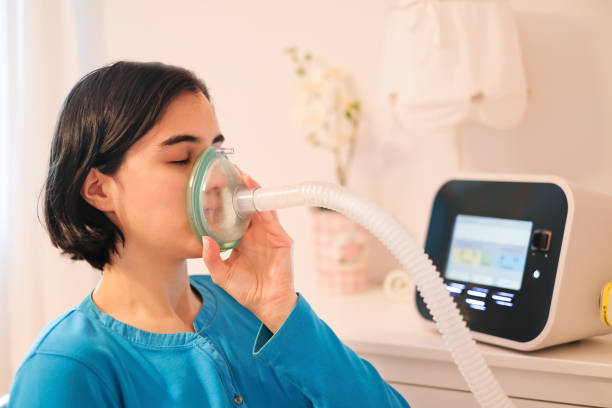Ventilator Care At Home - Abu Dhabi - Dubai
Ventilator care at home involves providing specialized medical support and monitoring for individuals who require the use of a ventilator to assist with breathing. It allows individuals who are dependent on a ventilator to receive care and support in the comfort of their own homes. Ventilators are mechanical devices that help individuals breathe by delivering oxygen-rich air into their lungs and removing carbon dioxide.
Here are some key aspects of ventilator care at home:
- 1. Home Ventilator Setup: A healthcare professional, such as a respiratory therapist or nurse, will assist with the setup and installation of the ventilator equipment in the home. This includes ensuring proper functioning, appropriate settings, and training caregivers or family members on its operation.
- 2. Ventilator Monitoring and Maintenance: Regular monitoring of the ventilator and its settings is essential to ensure it is functioning correctly. This may include monitoring oxygen levels, pressure settings, and alarm systems. Ventilator maintenance, including cleaning and replacing filters and tubing, is also important to maintain its proper functioning.
- 3. Tracheostomy Care: Some individuals on long-term ventilator support may have a tracheostomy tube, which is a tube inserted into the windpipe through a small incision in the neck. Tracheostomy care involves cleaning the stoma (opening), suctioning secretions, and ensuring proper hygiene and functioning of the tracheostomy tube.
- 4. Oxygen Support: In addition to the ventilator, individuals may require supplemental oxygen therapy. Oxygen levels are monitored, and oxygen equipment, such as concentrators or portable cylinders, may be used as needed.
- 5 Respiratory Therapy: Respiratory therapists may visit the home to assess lung function, provide breathing exercises, perform pulmonary function tests, and help manage any respiratory complications.
- 6. Caregiver Education and Training: Family members or caregivers receive comprehensive training on operating the ventilator, understanding emergency procedures, monitoring vital signs, and managing potential complications. This includes recognizing signs of respiratory distress, performing basic troubleshooting, and responding to alarms.
- 7. Regular Medical Check-ups: Individuals on home ventilator care will typically have regular follow-up visits with their healthcare provider to assess their respiratory status, review ventilator settings, and address any concerns or complications that may arise.
It's important to note that home ventilator care requires a multidisciplinary approach involving healthcare professionals, such as respiratory therapists, nurses, and physicians, along with family members or caregivers. The care plan is tailored to the individual's specific needs, and close communication with the healthcare team is crucial.
If you or a loved one requires ventilator care at home, it's essential to consult with a healthcare provider or home healthcare agency experienced in providing ventilator care. They can assess the individual's needs, coordinate the necessary equipment and training, and provide ongoing support and monitoring to ensure safe and effective care in the home setting.

